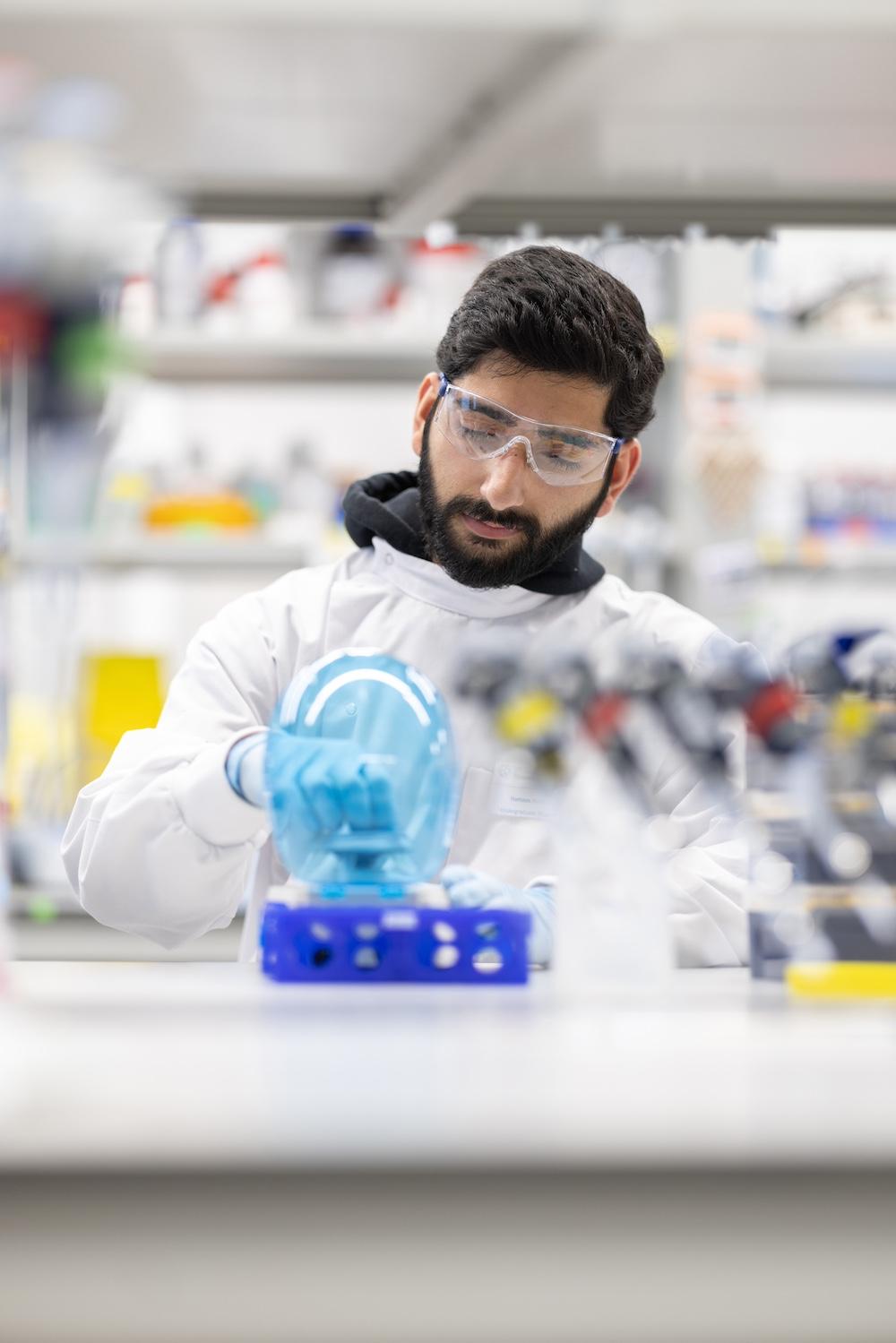Vacancies
-
Key details
- Location UK DRI at Imperial
- Successful applicants will receive a generous stipend of £23,800 rising by £1,000 each year, and home fees will covered*. Funding is also provided for research expenses, career development and student travel/conference attendance.
About the Project
An opportunity has arisen for a 4-year PhD studentship within the Department of Brain Sciences at Imperial College London, funded by the VIDA DTC. VIDA (Vascular and Immune contributors to DementiA) is a multi-institutional partnership between Alzheimer’s Society and four world-leading research sites: the University of Manchester, University of Edinburgh, Imperial, and City St George’s University of London. With projects focussing on the importance of vascular and immune mechanisms in dementia, VIDA PhD students will become the next generation of much-needed dementia researchers, contributing to breakthroughs in dementia diagnosis and treatment.
VIDA students will embark upon a 4-year fully-funded PhD project at one of the four institutions above, with access to the state-of-the-art research facilities and interdisciplinary training available at all sites. Students at each site will come together as a cohort at several points during the programme, including annual conferences and residential workshop retreats, which will link in with other Alzheimer’s Society Doctoral Training Centres across the UK. Students will also participate in engagement schemes with the Alzheimer’s Society and beyond, sharing the impact of their research in the community. The programme also benefits from built-in opportunities for placements with leading industrial partners, and bespoke training plans including schemes to develop teaching, mentoring, and grant writing skills.
Project Description:
Cerebral small vessel disease (SVD) is a major cause of stroke and vascular dementia, and a key contributor to Alzheimer’s disease (AD). It affects the brain’s smallest blood vessels, arterioles, capillaries, and venules, leading to pathologies such as cerebral amyloid angiopathy (CAA) and arteriolosclerosis. Clinically, SVD is characterised by white matter hyperintensities (WMHs), lacunes, microbleeds, and enlarged perivascular spaces. Early vascular dysfunction, including impaired cerebral blood flow and increased blood–brain barrier (BBB) permeability, is strongly linked to dementia onset and progression. While circulating biomarkers (e.g. VEGF, ICAM1, PDGFB, EDN1) correlate with imaging features of SVD, no single, robust blood biomarker currently exists.
Genome-wide association studies (GWAS) show that both SVD and AD are highly heritable, sharing several genetic loci such as APOE. Most disease-associated variants are noncoding and likely influence gene regulation. Epigenomic analyses have shown that AD heritability is enriched in microglia and myeloid cells, whereas SVD heritability localises to endothelial, mural, and astrocytic cells, which are key components of the neurovascular unit. Moreover, recent multitrait analyses have revealed shared loci between AD and cardiovascular disease, including PLEC and C1Q, implicating overlapping vascular and immune pathways. However, large-scale studies defining gene regulatory mechanisms in SVD and underlying common genetic mechanisms with cardiovascular traits and other dementias remain unexplored.
We hypothesise that integrative multiomic analyses of SVD blood samples will uncover novel molecular mechanisms, biomarkers, and therapeutic targets. Objective 1 will identify gene regulatory mechanisms that are dysregulation in SVD. DNA methylation and RNA-seq will be generated from 147 longitudinally phenotyped SVD blood samples (Mild Stoke Study 2 [MSS2] cohort), with matched genotype, proteomic, and neuroimaging data. Analyses will identify DNA methylation and gene expression changes associated with SVD subtypes, dementia progression, and polygenic risk, including cross-comparison with age-, sex-, and cardiovascular risk-matched controls from the AIRWAVES cohort. Objective 2 will prioritise genetic determinants of SVD. Multitrait analysis with cardiovascular traits, together with quantitative trait locus and Mendelian randomisation analyses will link causal variants to altered gene regulation. Cross-integration with histone modification (CUT&Tag) and single-cell multiomic data alongside plasma proteomics will refine biomarker and drug target prioritisation.
This project will deliver the first integrative map of gene regulatory mechanisms in SVD, linking human genetics to molecular function. These findings will accelerate biomarker discovery and enable genetically validated therapeutic strategies for SVD and vascular dementias.
Application process:
Applicants must hold (or obtain by October 2026) a first or upper-second-class honours degree or equivalent in a neuroscience, computational neuroscience or cardiovascular science or related discipline. A Master’s degree in a related research is highly desirable but not essential.
Training

PhD students
The Imperial College London Graduate School provides a range of free courses and workshops for postgraduate students, including topics such as:
- Research communication
- Research computing and data science
- Professional progression
Postdoctoral researchers
Imperial's Postdoc and Fellows Development Centre (PFDC) offers bespoke training for postdoctoral researchers, in areas including:
- Leadership development and peer mentoring
- Project management
- Fellowship applications
Staff
A wide range of staff development courses and programmes are available to all Imperial staff.
See here for further information about training opportunities available to UK DRI at Imperial researchers and staff.
Staff networks

LGBTQ+ Allies Network
The LGBTQ+ Allies Network promotes LGBTQ+ visibility within Imperial's Department of Brain Sciences, and provides a bridge with the wider LGBTQ+ STEM community.
Able@Imperial
Able@Imperial are a staff network who support and help Imperial staff with disability in the workplace.
Londonomics
The Londonomics network addresses a critical need for connectedness and support for Early Career Computational Researchers (ECCRs) based across London.
